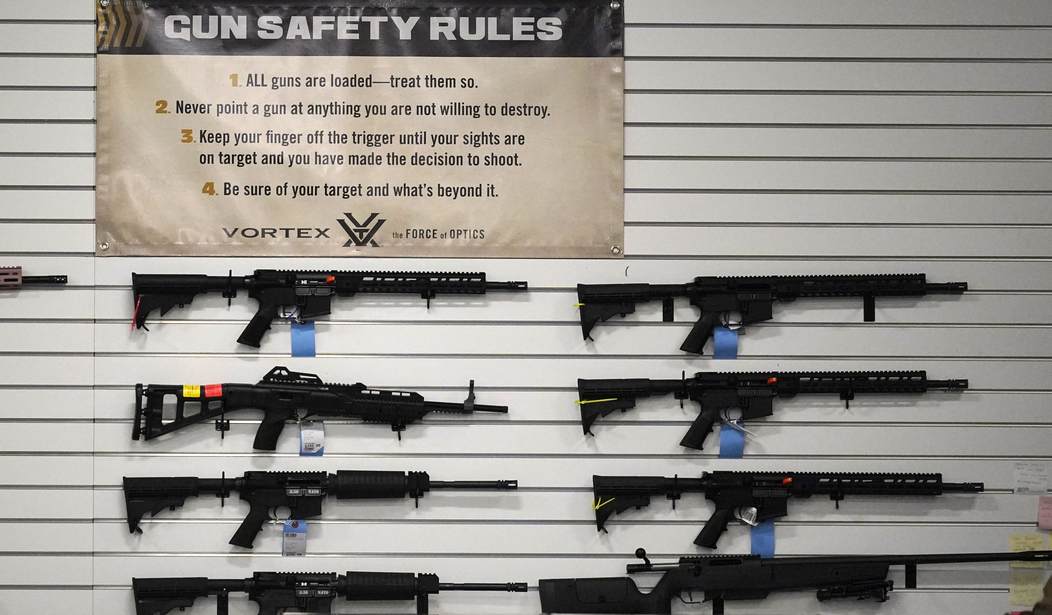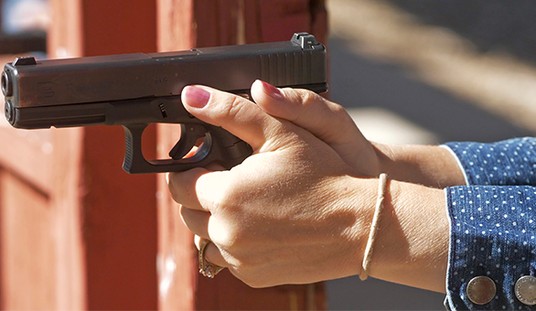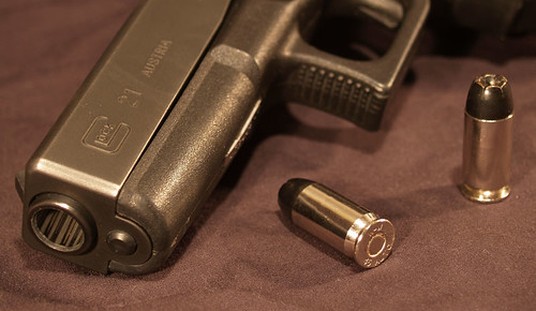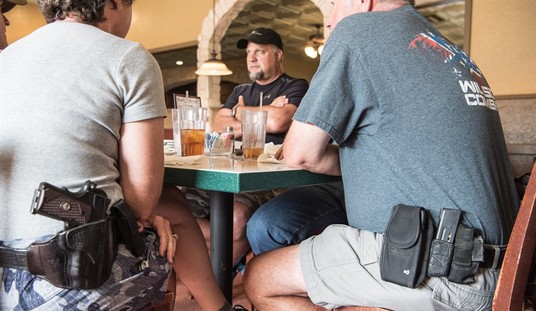It's been five years since then-Prime Minister Justin Trudeau announced a sweeping ban on semi-automatic firearms across Canada, telling gun owners that they would soon have to hand over their newly-prohibited firearms in exchange for some cash or else face criminal charges if they were discovered with any banned firearms going forward.
Since then the Liberal government has had to extend the amnesty period for existing gun owners twice as they tried to figure out the particulars of their gun confiscation scheme, and they may very well have to kick the gun ban can down the road again in just a few weeks.
Public Safety Minister Gary Anandasangaree said in the House of Commons in the spring the Liberals would not complete the collection of guns by the October amnesty deadline, though he would only say the Carney government was “looking at options,” when pressed by Conservative MPs. His office did not return a request for comment in time for publication.
Now, the risk of another delay and the challenges facing Ottawa, are prompting questions about what happens next with this key component of the federal government’s gun control plan.
Anandasangaree has said Ottawa is targeting a fall start to the second phase, after just over 12,000 firearms were seized in the initial phase targeted at businesses. He estimated around 180,000 guns will be collected, though gun lobby groups have said hundreds of thousands more are affected under the regulations put forward by the government. Nearly $600 million is budgeted over the next three years for the program, a figure much higher than originally committed to and that critics say does not account for administrative costs. Around $70 million had already been spent before a single gun was collected as of last year.
$70 million is a lot to spend on a gun "buyback", especially considering no guns were actually purchased from their rightful owners with any of that cash.
The compensated confiscation scheme has led to opposition from a wide variety of public officials and private citizens. The head of the Toronto Police Association, for instance, told the newspaper that confiscating guns from legal owners will have "little to zero effect" on violent crime in the city, since the vast majority of violent offenses involving a firearm are committed by gang members and organized criminals.
In places like Alberta and Saskatchewan, the planned gun ban has led to legislative pushback and even calls for the provinces to break away from Canada altogether. And beyond the politics, there's the practical matter of who, exactly, is supposed to go get these banned guns. Originally the Candadian postal system was tasked with collecting the hundreds of thousands of prohibited firearms, but after the agency balked the Liberal government has tried to turn to various law enforcement agencies. The Star reports, though, that "just two deals have been made public: $2.8 million to the Winnipeg Police Service and $100,000 to the Cape Breton Region Police Service," with both deals expiring in less than a year (and again, without any guns collected to date).
Even if Prime Minister Mark Carney can find enough police departments willing to take on the task of collecting the guns, a report commissioned by the Trudeau administration warned of high rates of non-compliance.
“They’re going to say to the policemen that come to the door, ‘No, you can’t have them. I legally bought them. I legally paid for them with my money, and I’ve complied by every law since the day I got them. And I’m not giving them to you,’” said Tony Bernardo, a spokesman for the Canadian Shooting Sports Association. “What are the police going to do at that point?”
Seeing an opening, the country’s biggest gun lobby group is proposing a way to water down the program they say will help the government save face rather than double down on a policy “destined to fail.”
Making the case that proposed costs for the program will skyrocket and it will have little public safety benefit, the Canadian Coalition for Firearm Rights urged Carney in a letter last week not to proceed with the buyback and instead usher in a “grandfathering” system, which was used before and would allow current owners of the banned guns to keep them and use them as they did before while disallowing new ones from entering the market.
Tracey Wilson, the group’s head of public relations, told the Star she believes Carney is “more serious” than Trudeau and could be willing to compromise.
“He’s going to have a hard time justifying this crazy expense while cutting from all these government departments,” Wilson said. “If they’re not willing to make concessions, people need to think about the priorities of the government.”
If a U.S. gun group offered up a compromise like this, they'd rightfully be pilloried by gun owners. Canada, though, doesn't protect a right to keep and bear arms. It's a privilege, so the prospects of winning a lawsuit challenging the ban are practically nil, and non-compliance is pretty much the only bargaining chip groups like the CSSA have at the moment.
The problem for Carney is that, even if that "compromise" might mollify some gun owners, it would enrage the gun control lobby. Anti-gunners are an important constituency for the Liberals, and I doubt the prime minister will accept the CSSA's offer even if it's the easiest way out of his gun control conundrum.
Those gun prohibitionists within our own borders who'd like to see the U.S. adopt a Canadian-style gun ban scheme are deluding themselves. The Canadian government has budgeted more than half a billion dollars to collect about 200,000 firearms, and even that's proven to be unworkable and unfeasible. Now imagine trying to collect more than 20,000,000 AR-15s and other semi-automatic arms. It would take billions to fund a compensated confisation scheme, and the gun control lobby would run into the same problem with finding agencies willing to undertake the task of collecting banned firearms.
In fact, it would be far worse. My guess is that more than half of the states would simply refuse to cooperate or comply with any federal edict requiring Americans to hand over their guns in exchange for some cash, and that's if the Supreme Court were to uphold a compensated confiscation scheme in the first place.
Canada's anti-gunners don't face nearly as many obstacles as their American counterparts, and they still haven't been able to pull off their confiscation plans. There's a lesson there for the gun control lobby, but I doubt that many prohibitionists are willing to accept it.
Editor's Note: While we don't have to worry about Canadian-style gun confiscation at the moment, there are still plenty of threats to our 2A rights.
Help defend those rights by joining Bearing Arms VIP and use promo code FIGHT to take 60% off your VIP membership!









